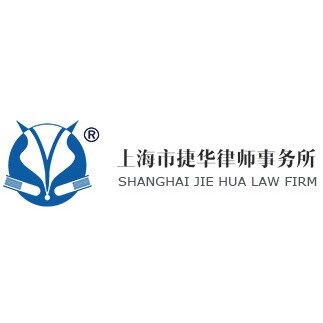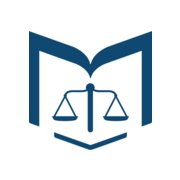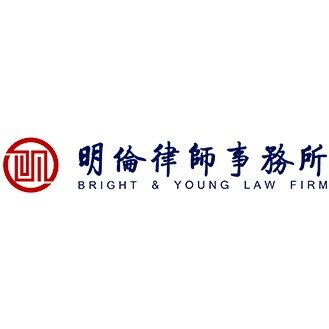Best Child Abuse Lawyers in China
Share your needs with us, get contacted by law firms.
Free. Takes 2 min.
Free Guide to Hiring a Family Lawyer
Or refine your search by selecting a city:
List of the best lawyers in China
About Child Abuse Law in China
Child abuse in China is a serious issue that encompasses physical, emotional, and sexual harm inflicted upon individuals under the age of 18. The Chinese legal system has progressively implemented measures to protect children and respond to instances of abuse. The Criminal Law of the People's Republic of China, along with the Law on the Protection of Minors, are key legislative frameworks providing legal definitions and criminal liabilities associated with child abuse. Efforts for prevention, intervention, and legal recourse are continuously evolving to address the problem more effectively.
Why You May Need a Lawyer
Legal representation may be needed in various situations related to child abuse in China, including:
- If you or a loved one is a victim seeking to file a report or take legal action.
- When accused of child abuse, as understanding your rights and defense options is critical.
- For navigating custody disputes where allegations of abuse are present.
- Whenever complicated legal processes, such as appeals, are involved in a child abuse case.
- If you are an organization or individual mandated to report child abuse, requiring guidance on compliance.
Local Laws Overview
Understanding local laws relating to child abuse in China involves several key aspects:
- Criminal Liability: Perpetrators can face criminal charges such as unlawful detention, intentional injury, or crimes against social management order if the abuse meets certain criteria.
- Mandated Reporting: Certain professionals, including teachers and healthcare workers, are legally required to report suspected abuse.
- Role of Social Services: The government and local social organizations are tasked with protecting minors and supporting victims of abuse.
- Law on the Protection of Minors: This law outlines the responsibilities of guardians, schools, and government bodies in preventing and responding to abuse.
- Recent Amendments: Changes to child protection laws have strengthened penalties and expanded definitions of abuse to encompass more forms of harm.
Frequently Asked Questions
1. What constitutes child abuse in China?
Child abuse in China includes physical, emotional, and sexual harm, as well as neglect and exploitation of children under the age of 18.
2. Who is considered a child under Chinese law?
A child is defined as any individual under the age of 18 according to Chinese law.
3. How do I report suspected child abuse in China?
You can report suspected child abuse to local police, child protection services, or specialized social organizations dedicated to child welfare.
4. Are there penalties for failing to report child abuse?
Certain professionals are mandated by law to report suspected abuse. Failure to do so can result in legal consequences, including fines and other penalties.
5. Can accusations of child abuse affect custody arrangements?
Yes, accusations of abuse can significantly impact custody decisions, potentially resulting in loss of custodial rights or visitation restrictions.
6. What legal protections are in place for victims of child abuse?
Victims have the right to protection, legal representation, and access to social services designed to support recovery and welfare.
7. How does the Chinese legal system handle child abuse cases?
Cases may be prosecuted under various legal provisions, including specific charges related to minor protection and criminal laws on assault and exploitation.
8. Are cultural attitudes towards child discipline changing in China?
While traditionally certain forms of discipline were accepted, there is increasing awareness and legislative action against abusive practices, emphasizing children's rights and welfare.
9. What role do schools play in preventing child abuse?
Schools are required to establish preventative measures, educate students on abuse, and report any suspected issues to authorities.
10. How can I access legal assistance for a child abuse case?
Legal aid can be sought through law firms specializing in family law, non-governmental organizations, and governmental aid services designed to provide counsel in such matters.
Additional Resources
Several resources can assist individuals seeking information or help regarding child abuse in China:
- The Ministry of Civil Affairs offers support related to the welfare of children.
- All-China Women's Federation provides protection and advocacy for women's and children's rights.
- Local social service organizations can offer guidance and support for victims of child abuse.
- Consultations with legal professionals specializing in family and minor protection law are advisable.
Next Steps
If you require legal assistance in a child abuse case in China, consider taking the following steps:
- Seek Immediate Help: Contact local authorities or child protection services to report abuse.
- Consult a Lawyer: Find a lawyer specialized in family or criminal law to discuss your case.
- Gather Evidence: Document any evidence related to the abuse, including dates, details of incidents, and any correspondence.
- Access Support Services: Reach out to organizations offering legal aid and emotional support.
- Understand Your Rights: Familiarize yourself with relevant laws to better understand the legal processes involved.
- Prepare for Legal Proceedings: Engage fully with your legal counsel to plan your approach, whether you are a victim, the accused, or involved in a related case.
Lawzana helps you find the best lawyers and law firms in China through a curated and pre-screened list of qualified legal professionals. Our platform offers rankings and detailed profiles of attorneys and law firms, allowing you to compare based on practice areas, including Child Abuse, experience, and client feedback.
Each profile includes a description of the firm's areas of practice, client reviews, team members and partners, year of establishment, spoken languages, office locations, contact information, social media presence, and any published articles or resources. Most firms on our platform speak English and are experienced in both local and international legal matters.
Get a quote from top-rated law firms in China — quickly, securely, and without unnecessary hassle.
Disclaimer:
The information provided on this page is for general informational purposes only and does not constitute legal advice. While we strive to ensure the accuracy and relevance of the content, legal information may change over time, and interpretations of the law can vary. You should always consult with a qualified legal professional for advice specific to your situation.
We disclaim all liability for actions taken or not taken based on the content of this page. If you believe any information is incorrect or outdated, please contact us, and we will review and update it where appropriate.
Browse child abuse law firms by city in China
Refine your search by selecting a city.















